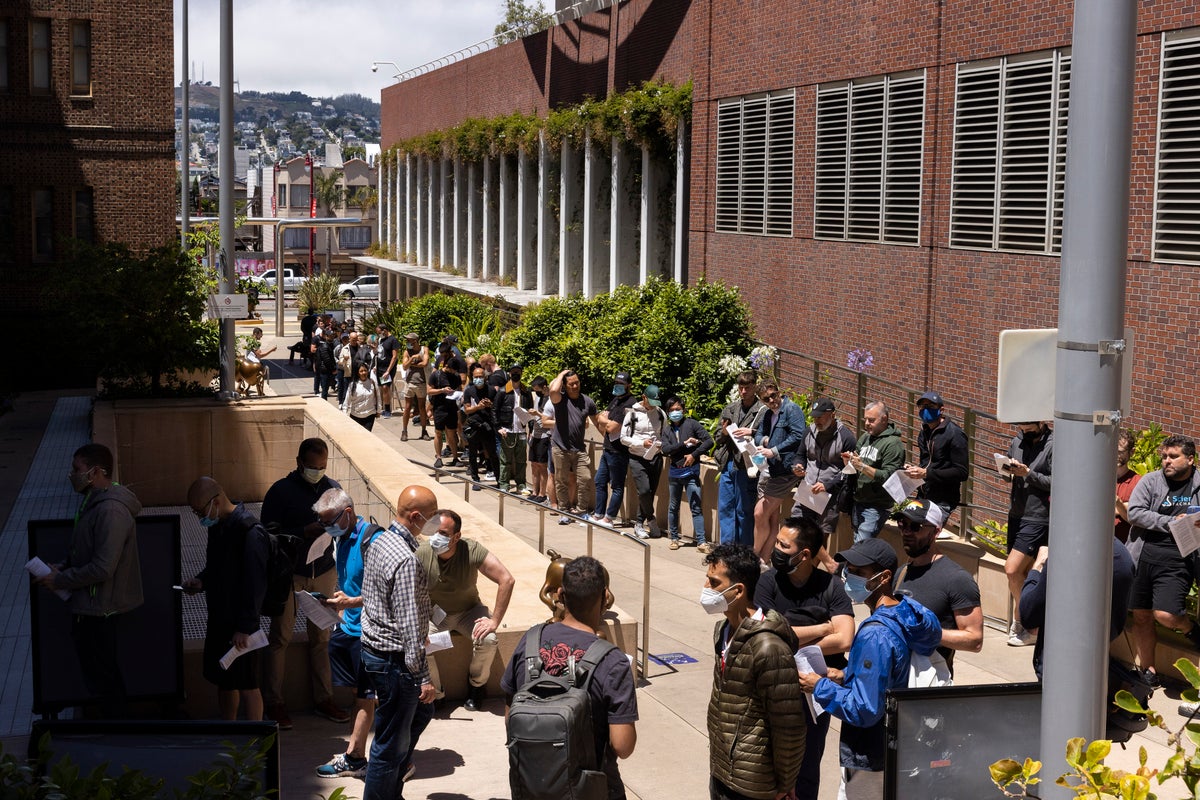
More than 100,000 monkeypox vaccine doses are being sent to states in the next few days, and several million more are on order in the months ahead, U.S. health officials said Friday.
They also acknowledged the vaccine supply hasn't kept up with the demand seen in New York, California and other places.
Officials predicted cases will keep rising for at least a few more weeks as the government tries to keep up with a surprising international outbreak accounting for hundreds of newly reported cases every day.
Some public health experts have begun to wonder if the outbreak is becoming widespread enough that monkeypox will become an entrenched sexually transmitted disease.
“All of our work right now is to prevent that from happening,” said Dr. Rochelle Walensky, director of the Centers for Disease Control and Prevention.
Monkeypox is endemic in parts of Africa, where people have been infected through bites from rodents or small animals. It does not usually spread easily among people.
But this year more than 12,000 cases have been reported in countries that historically don't see the disease. The infections emerged in men who had sex with men at gatherings in Europe, though health officials have stressed that anyone can catch the virus.
As of Friday afternoon, nearly 1,500 U.S. cases had been reported, with hundreds of cases being added to the tally each day. Officials have demographic information on about half the patients and said Friday that nearly all are men and the vast majority had same-sex encounters.
Experts believe the case numbers are undercounts.
Walensky said she expected cases to rise at least into August, in part because it can take three weeks from the time someone is infected until they develop symptoms and are diagnosed.
The virus mainly spreads through skin-on-skin contact, but it can also transmit through touching linens used by someone with monkeypox.
People with monkeypox may experience fever, body aches, chills and fatigue. Many in the outbreak have developed zit-like bumps on many parts of the body.
No one has died, and the illness has been relatively mild in many men. But for some, the lesions can be “exquisitely painful" and there is a risk of scarring, said Dr. Mary Foote, medical director of the New York City health department’s Office of Emergency Preparedness and Response.
When the outbreak was first identified in May, U.S. officials had only about 2,000 doses of a new, two-dose monkeypox vaccine available.
Officials have recommended the shots be given to people who know or suspect they were exposed to monkeypox in the previous two weeks, and vaccination clinics in some cities have been overwhelmed by demand. The government distributed 156,000 doses nationally as of Thursday, including 100,000 this week. And it expects to start delivering 131,000 more doses by Monday, said Dawn O’Connell of the U.S. Department of Health and Human Services.
There also are about 800,000 doses in Denmark that will come to the U.S. soon. And the government this month announced orders of 5 million more doses, though most of those are not expected to arrive until next year.
The vaccine, Jynneos, has never been widely used in response to an outbreak like this, and the government will track how well it's working, Walensky said.







